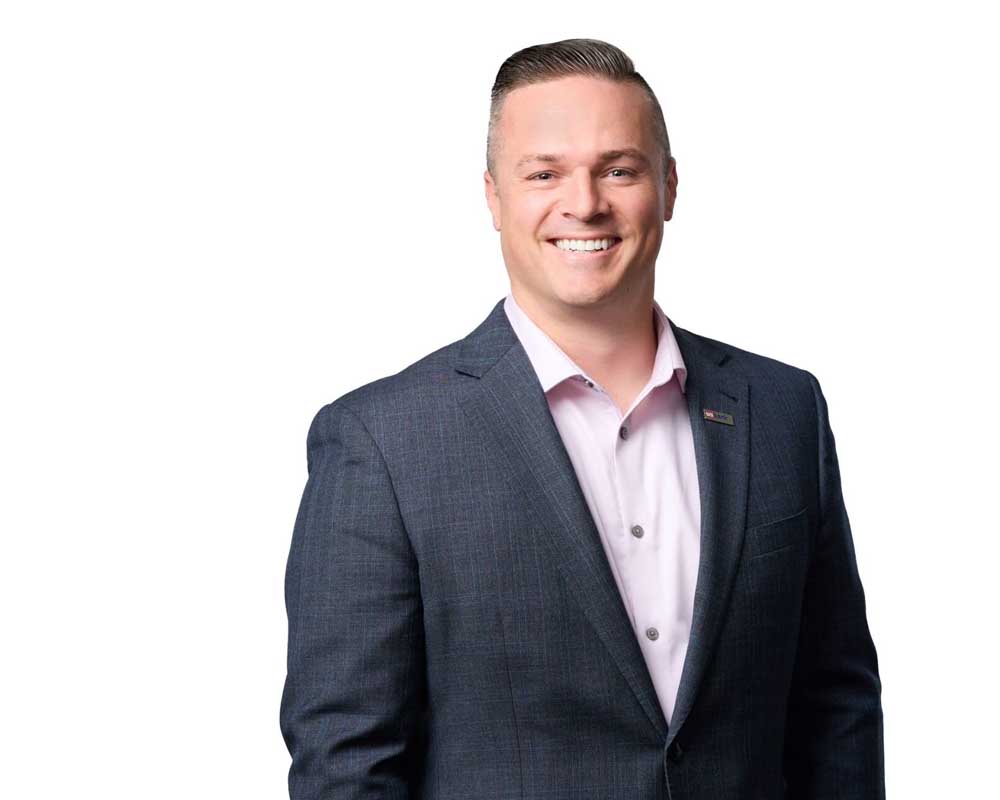Crush debt, build savings: Pro tips for making the most of tax refunds
Published 3:34 pm Thursday, January 30, 2025

- SETH TINDALL
While Oregonians still have months to file their taxes, developing a plan now on how to best use an anticipated tax refund should start today. It can be one of the easiest ways to help achieve one of the most common New Year’s resolutions: saving more.
Trending
Q. Why is it important to plan ahead?
A. All of us have financial goals, whether we want to acknowledge them or not, and thinking about the next steps toward those goals is vital to succeeding at them.
Say you want to buy your first house, are you thinking about the money that you’d need to set aside for the down payment? Are you wanting to stash money away for a kid’s college fund? Are you wanting to pay down debt?
Trending
These questions and more are what you should thinking about as we head into tax season, as this is often the biggest chunk of money that will come all year for most Oregonians. Make the most of it.
Q. Heading into 2025, many people made savings a priority. For people just starting out, what do you recommend?
A. More than 25% of Americans have no savings at all and 59% are uncomfortable with their level of savings, according to data from Bankrate. We always tell people that a good rule of thumb is to have at least three months of living expenses set aside for emergencies, though six months is where I’d feel more comfortable.
If you aren’t confident about what you have saved for an emergency, use your tax refund to start or add to your emergency fund.
Q. How can Oregonians make 2025 a year of savings?
A. I’ll be blunt, saving can be hard. To make it easier, I do suggest four things.
• Pre-commit your refund to savings. If you don’t need your refund for everyday living expenses, consider putting some of your refund directly into saving.
A study found that tax filers who pre-committed their tax refund to savings early in the tax filing process saved 25% more than filers who did not.
The act of pre-committing can come in many forms, from using digital tools provided by your bank to mental accounting and writing it down as a goal for the year.
• Set achievable goals. Do not be unreasonable as far cuts or a timeline for savings go. You must take into consideration everything from upcoming expenses, bills, and debt payoff. If your goals are reasonable, adding money to your savings plans won’t feel as stressful.
• You won’t miss what you don’t see. One way that might be beneficial toward saving more is doing something like automatically transferring a set amount from your checking to a saving account every time you get paid. Let that grow and — when it reaches a limit you are comfortable with — work with a financial professional to see how to make that money work better for you and your goals.
• Set a budget. Look at your spending habits throughout the month and see where you can realistically cut back. Make tangible spending limits that are easy to stick to: the simpler the budget is, the more likely you are to attain it. Be kind to yourself: if you’d like a morning coffee, buy it and be mindful tomorrow of the decisions you made yesterday.
Q. For some, reducing their debt may be a priority. Any guidelines for them?
A. This can really depend on the kind of debt that people are carrying. However, let me focus on credit cards.
Soaring interest rates have resulted in Americans carrying a record amount of credit card debt.
If you have high-interest revolving debt on a credit card or other loan, consider using a portion of your refund to pay down that debt and reduce future interest payments.
If you are carrying a significant amount of debt or have a variety of debt types, it’s always best to speak to a trusted financial professional to help you develop a plan that best fits your needs.
Q. Any final thoughts?
A. It’s important to note that everyone’s financial situation is different. Establishing a budget and developing a savings plan will be unique to each person or family, and is based on their needs and wants.
Figuring out how to meet those is not only about educating yourself but about finding a reliable and trusted partner, whether it’s a financial planner, a wealth adviser or banker.







